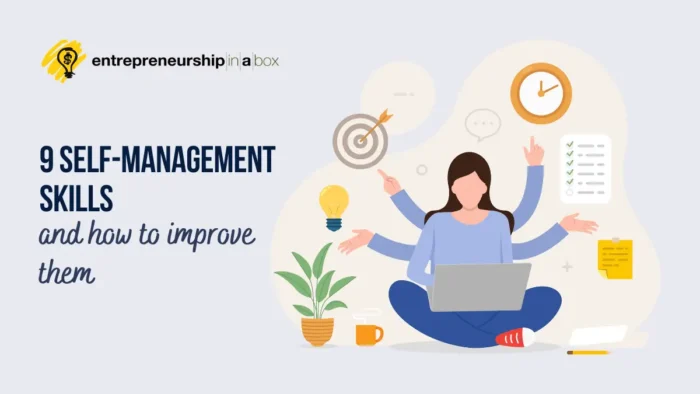You probably have already heard about self-management or managing yourself to achieve what you want to achieve. But, in my experience of more than 20 years as an employee, manager, and business owner, believe me, the most essential and the hardest achieving skills are self-management skills.
How do I motivate myself to finish everything I have planned for today? How do I escape from procrastination? Or, how do I manage my scarcest resource, time? All of these questions and many others are always in my head. And, it is normal because we as human beings will always want to improve ourselves, be better today than yesterday and tomorrow than today. Because of that, we are the most intelligent beings in this world.
I have written many times about different skills like management, leadership, business, startup, etc. But now I see that I have never covered something related to self-management; they are only mentioned in management skills.
So, here I will discuss self-management skills and how to improve them because, without healthy self-management, the probability of success in anything will be at the lowest level.
What is self-management?

In the simplest form, self-management is the process of how you manage yourself, as the name suggests.
How do you organize yourself to do everything on your to-do list? Or, how do you manage your tasks and priorities? Do you have or use some self-motivational tactics? What about your personal goals and the way you achieve them? How do you deal with stressful situations? How do you manage yourself if you need to adapt to your environment? Or, how do you manage your behaviors and emotional states?
Your self-management skills will always have responses to these questions.
Why Self-Management is Important?
When I go back, I have started two side hustles in primary school, one pen repair service and one gum-scented eraser resale. So, that was my first entrepreneurial experience. Then, I focused more on studying, first in high school and later on faculty to become a mechanical engineer. In that period of time, I really needed a high level of self-management, even though I didn’t know that I had started developing them somehow.
After my high-education time, I started to work in public administration. Again, I must realign my self-managing skills. Then, when my career evolved to a managerial position, I needed more managerial skills, but still, there was a need for new self-managing skills. I will never forget the time when I became responsible for a team of seven people with different competencies. It was much easier when other people managed me than when I needed to manage a team of people.
But, I already have some management knowledge, and after a month or two, it becomes easier to manage other people. On the other hand, I needed competence to act on another level, listen to other people’s opinions, control my emotions, control stressful situations, manage time efficiently, etc. So, I concluded that to self-manage myself was harder to achieve than to manage others.
Also, when I went through the master’s and PhD degree processes, I started to study and research, and again, I needed better self-management skills. I needed to organize myself, better manage time, balance work, faculty, and family, take more personal responsibility, better manage stress, etc.
I don’t want to go through the period when my wife was diagnosed with cancer, and I was always with her in the hospital on two surgeries, chemotherapy and radiotherapy, and in the same way, to continue to work to pay the bills. Again, I needed stress management, time management, emotional regulation, and so on. Thanks to God, we survived those bad times.

So, effective self-management was something that helped me achieve all my goals and improve my self-awareness. They helped me in great, but also in the worst time of my life. They always helped me find a way to fight and get up after I failed.
As you can see from my story, you will always need some self-management skills regardless of what position you are in and what stage of your life you are living. Improving your self-management abilities can improve your self-awareness and overall well-being.
Let’s see what the most important skills are to self-manage yourself.

1. Good Time Management Skills
If you want to be productive with whatever you are doing, you must start mastering time management skills. If you succeed in effectively managing your own time, you will start doing important things as a part of your daily tasks on time with the best possible quality.
Time management is your ability to handle and control your time, from prioritizing tasks to breaking them down and scheduling them, taking breaks to finish them. With strong time management skills, you will eliminate or at least minimize procrastination, which is one of the biggest problems you have when you work on an important or significant task for you or your business.
Related: 5 Techniques to Beat Procrastination and Win on Your Entrepreneurial Journey
But are there ways to develop your time-management skills?
First, you need to learn to plan your time ahead using the right tools, like a to-do list with appropriate prioritization of each task. You can use tools like OmniFocus and Things to group your tasks into important projects, context, and priority. So, whenever you add a new project, you can systematically add different tasks with deadlines to complete the project. When you use task deadlines, ensure that you will not allow a multi-tasking approach that, in many cases, will be unproductive for you.
Related: Smart Skills You Will Need Now as an Entrepreneur
A time management matrix is a tool that can help you complete all important tasks based on prioritization according to importance and urgency. In this way, you can ensure that all your most important tasks with high urgency will always have the highest possible priority for you.
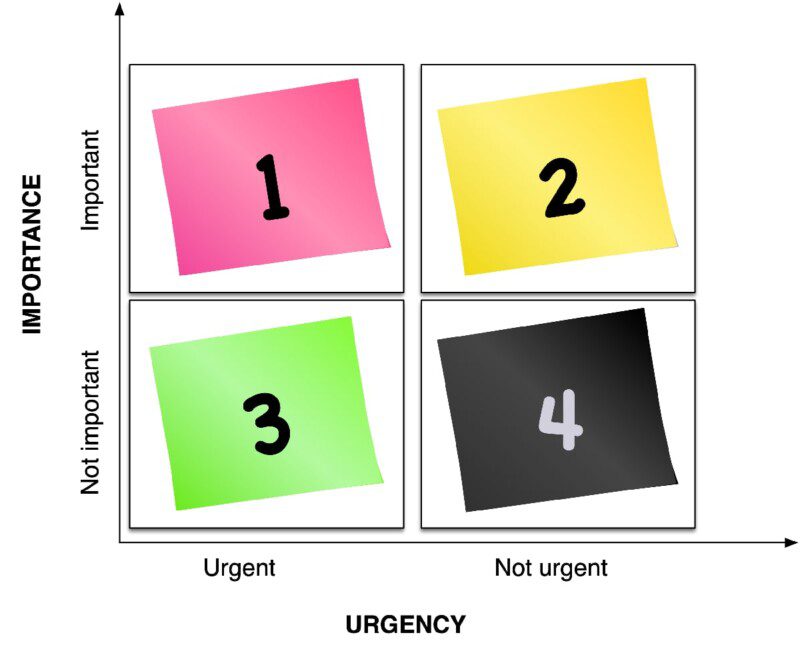
Related: How to Be More Productive at Work in This Messy Business Environment
2. Great Self-Motivation Skills
Another important self-management competence is self-motivation, which is how you get motivated to get things done.
What about your personal responsibility? You will always be motivated to finish the work if you feel responsible about the work you are doing.
Is there something that will drive you to start working on important things? You must have some internal and personal drivers that will motivate you to take the first step and start working on things you must do.
Is it something that makes you fulfilled or that you know you will achieve something with your own work? Do you enjoy the work you are doing? Fulfillment and enjoyment are important factors for self-motivation
The only way to develop your self-motivation skills is by practicing self-motivation through increasing your own responsibility, finding strong motivational drivers, and ensuring you like to work on those specific important tasks.
Related: Uncovering the Psychologists’ Theories of Motivation: What Drives Human Behavior?
3. Personal Goals Setup and Goal Alignment Skills
Goal setting is an important self-management competence you must possess. Everything you are doing comes from some specific goals about what you want to achieve in the future.
When it comes to setting goals and aligning them with the larger picture, you must develop your goal-setting abilities by following these steps:
- Goal setting is the first step you need to take. Start with three personal goals about what you want to achieve in the next month, three months, or a year. Don’t set too many goals, but only the three most important things you think you must achieve for a specific period. Ensure that your goals are SMART goals that ensure your goals are specific, measurable, achievable, and time-bound.
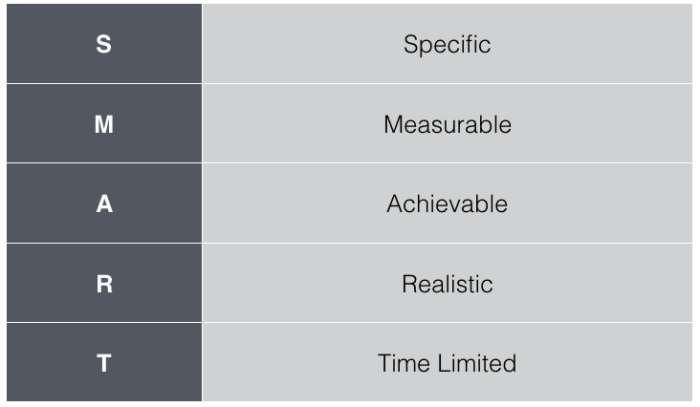
- Commit yourself to your goals. If you want to achieve your goals, develop your commitment towards them. When you commit yourself to a specific goal, it helps you to focus on the necessary actions required to reach it. Moreover, when you are committed, it leads to even more commitment, which is a simple formula for success in both personal and professional life.
- Track the progress towards the achievement of your goals. The last important thing is tracking your progress and performance toward achieving your goals. Sometimes, you will need to realign your goals based on the actual situation regarding what you are doing to achieve them. So, don’t be afraid if you need to change something; sometimes, things will not go as expected. It is more important to learn and improve your goal-setting process.
Related: Real-life Organizational Decision-Making Examples
4. Stress Management Skills
Another important self-management skill you must practice is healthy stress management to avoid burnout and ensure your own well-being.
Stress is a common part of personal and business life. The physical, mental, or emotional pressure or anxiety results from your environmental circumstances.
In your business, some common sources of stress can be a high workload level, short deadlines, unclear job expectations, or conflicts with your team members. On the other side, personal factors such as financial concerns, family issues, or health problems can also contribute to increased stress levels.
How can you reduce stress, and what can you do to improve your stress-management abilities? Your self-care is important when it comes to stress management, so you can:
- Practice meditation. Regular meditation can help you calm your mind, reduce anxiety, and improve focus and attention. Even just a few minutes of quiet, focused breathing each day can make a big difference. I didn’t believe this until I bought my first Apple Watch and saw how several minutes of meditation lowered my heart rate.

- Practice physical exercise: Regular physical activity releases endorphins, natural mood lifters that relieve stress. Whether it’s a brisk walk during lunch break, a yoga class after work, or a weekend bike ride, you must find an activity that you enjoy and make it a part of your everyday routine.
- Strong time management: Effective time management can help reduce feeling overwhelmed and minimize stress. So, as I already discussed previously, you must use strategic planning and prioritize tasks, break big projects into smaller, manageable parts, and delegate whenever possible.
5. Adaptability Skills
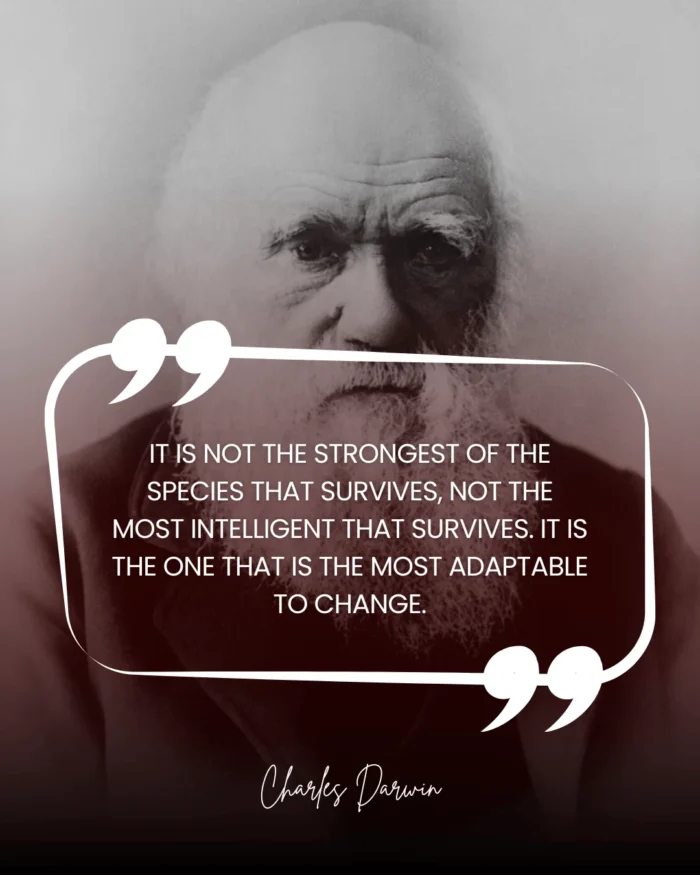
Adaptability skills are another important self-management competence, which is your ability to change or adjust your actions, beliefs, and behaviors in response to new situations, changes, or unexpected barriers around you.
As one of the most cited quotes said:
It is not the strongest of the species that survives, not the most intelligent that survives. It is the one that is the most adaptable to change.
– Charles Darwin
Adaptability involves flexibility, openness to new ideas, and the willingness to take on unfamiliar tasks or roles.
Effective self-management requires you to have the ability to adapt to changing external events around you, as well as self-regulation. Adaptability skills are crucial, whether it’s adjusting to a new role at work, dealing with unexpected personal challenges, or finding balance in your busy life.
6. Managing Your Behaviors and Emotions

Another important self-management competence is successfully managing your behaviors and emotional skills.
Behavioral management involves controlling your actions and responses to different situations. It’s about being aware of how your behaviors impact others and modifying them to create a more positive environment. So, you must learn how you can self-control yourself.
On the other hand, emotional skills, also known as emotional intelligence, involve recognizing, understanding, and managing your own emotions as well as the emotions of others. These skills are critical in dealing with personal and professional challenges effectively through your own self-awareness about your and other people’s emotions.
7. Self-Discipline

Self-discipline plays a critical role in self-management. It helps you establish healthy habits, make wise decisions, and stay focused on your goals, even in a crisis.
Discipline is your ability to control your feelings, overcome obstacles, and persist to achieve your long-term goals. It’s about making choices that align with your objectives, even when they may not provide immediate gratification. It involves commitment, focus, resilience, and delaying some current satisfaction because of achieving long-term goals.
Developing your own discipline requires practice and persistence. Here are some strategies:
- Set clear goals: Knowing what you’re working towards can help you maintain focus and motivate you to stay disciplined.
- Establish routines: Regular routines can help reinforce discipline.
- Practice patience: Remember, your own discipline is all about long-term success, not quick gratification.
8. Personal Development
Personal development involves activities that improve self-awareness and self-esteem, develop knowledge, and enhance the quality of life.
It is important to mention that personal development is intrinsically linked with self-management. Strong self-management requires a deep understanding of yourself, including being self-aware of your strengths, weaknesses, and aspirations.
9. Decision-Making Skills
Our whole life is based on the everyday decisions we make about everything. From small routine decisions to hard decisions that will greatly impact our lives, we conduct a daily decision-making process.
Decision-making skills involve choosing between alternatives based on available information, potential consequences, and personal or professional goals. These skills require critical thinking, problem-solving abilities, and a keen understanding of the situation at hand.
Related: An Introduction to Decision-Making Process
3 Ways to Build Strong Self-Management Skills
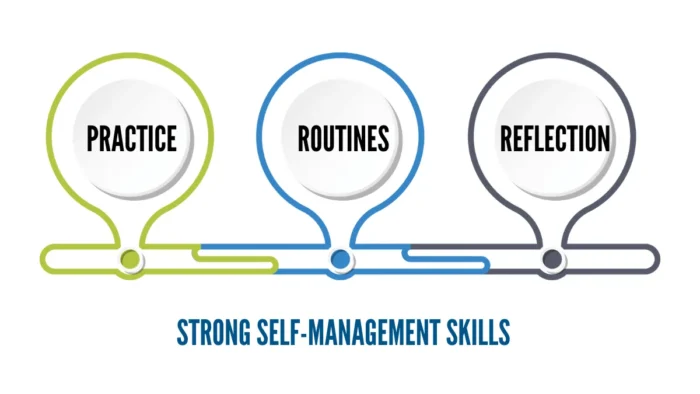
So, the question is how to build and improve your self-management skills. Let’s look at some ways that can help you:
- Practice, practice, and practice. Practice is the first and maybe most critical step in building strong self-management skills. Consistent practice is key, whether it’s learning a new instrument, mastering a foreign language, or developing useful self-management techniques. Start by identifying the specific self-management skills you want to improve and create a plan to practice them regularly.
- Develop routines. Routines provide structure with a direct impact on your self-management. Establishing regular routines can help you automate certain decisions, saving mental energy for more complex tasks. Remember to include relaxation and self-care in your routine.
- Reflect regularly. Regular reflection is a powerful tool for personal development and self-management. By reflecting on your actions, decisions, and progress toward your goals, you can gain valuable insights, celebrate achievements, and identify areas for improvement.
Frequently Asked Questions
Self-management skills are a spectrum of abilities that enable individuals to effectively manage their time, emotions, behavior, and resources. This includes time management, emotional regulation, decision-making, setting goals, and discipline.
Self-management skills are crucial for personal and professional success. They allow you to navigate challenges, achieve your goals, increase productivity, improve relationships, and cultivate a sense of empowerment. Strong self-management skills allow you to make informed decisions, regulate emotions, manage time, and solve problems efficiently.
Improving self-management skills involves practice, routines, and regular reflection. Remember, these skills are not innate but can be learned, practiced, and improved over time.

